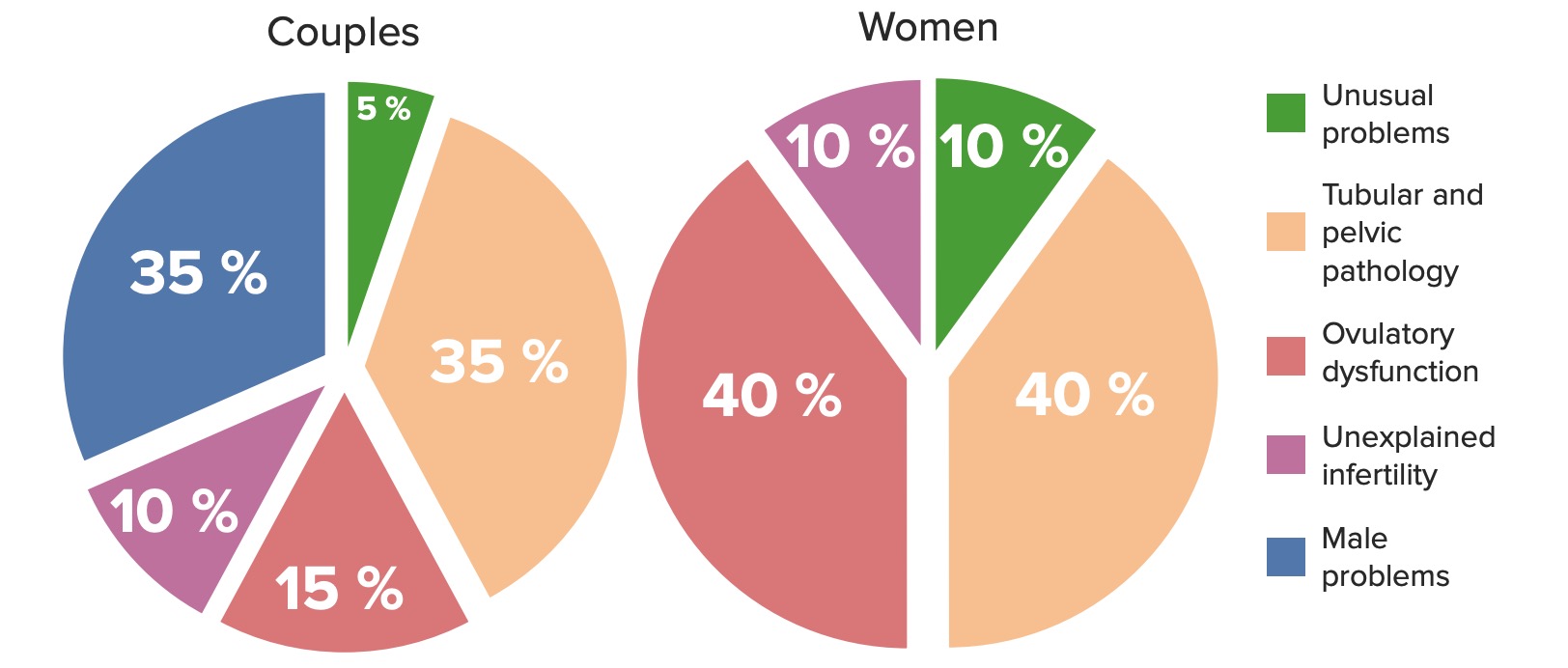Playlist
Show Playlist
Hide Playlist
Male Infertility
-
Slides Reproductive Endocrine Disorders.pdf
-
Download Lecture Overview
00:01 Male infertility can be assessed again clinically by evaluation of the history and physical exam. 00:08 On history, one should always ask the patient about potential causes of infertility that they may have experienced. 00:14 These for example would include trauma to the testicles or any prior condition that may have affected their ability to generate sperm. 00:24 Have they had a developmental delay in the history or do they have any family history of patients with genetic disorders? Illness that required medications that could potentially be toxic to spermogenesis. 00:32 Have they had any chronic illnesses? Infections, prior surgery, drugs, environmental exposure such as toxins in the workplace, sexual history and prior fertility history On physical exam, one is looking for any evidence of androgen deficiency and one also wants to do a very detailed testicular exam particularly looking for decrease in size of the testicles or a decrease in the density of the testicles. 01:08 This can sometimes be done with comparison to an orchiometer Semen analysis would follow next. 01:16 Collect 2-3 days after sexual abstinence. 01:19 Abnormal semen analysis should always be repeated in at least 2 weeks to confirm the diagnosis. 01:26 Abnormal results should generally be referred to a reproductive endocrinologist. 01:32 Here's an algorithm to remind you of the normal male reproductive axis. 01:36 Pulses of GnRH elicit pulses of luteinizing hormone and FSH FSH acts on the Sertoli cells which assist sperm maturation and produce inhibin B which is the major negative regulator of basal FSH production. 01:52 The Leydig cells produce testosterone which feeds back negatively to inhibit GnRH and luteinizing hormone release Some testosterone is irreversibly converted to dihydrotestosterone or estradiol which are both more potent than testosterone in suppressing GnRH and lutenizing hormone.
About the Lecture
The lecture Male Infertility by Michael Lazarus, MD is from the course Reproductive Endocrine Disorders.
Included Quiz Questions
What is the most appropriate next step when a semen analysis test has an abnormal result?
- Repeat semen analysis in two weeks
- Repeat semen analysis in two days
- Refer to a reproductive endocrinologist
- Test for serum testosterone levels
- Test for serum dihydrotestosterone levels
Which of the following pairs correctly represents the inducing hormone and the cell type responsible for the synthesis of testosterone in the testes?
- Luteinizing hormone Leydig cells
- Luteinizing hormone Sertoli cells
- Follicle-stimulating hormone Sertoli cells
- Follicle-stimulating hormone Leydig cells
- GnRH Leydig cells
Customer reviews
5,0 of 5 stars
| 5 Stars |
|
5 |
| 4 Stars |
|
0 |
| 3 Stars |
|
0 |
| 2 Stars |
|
0 |
| 1 Star |
|
0 |




